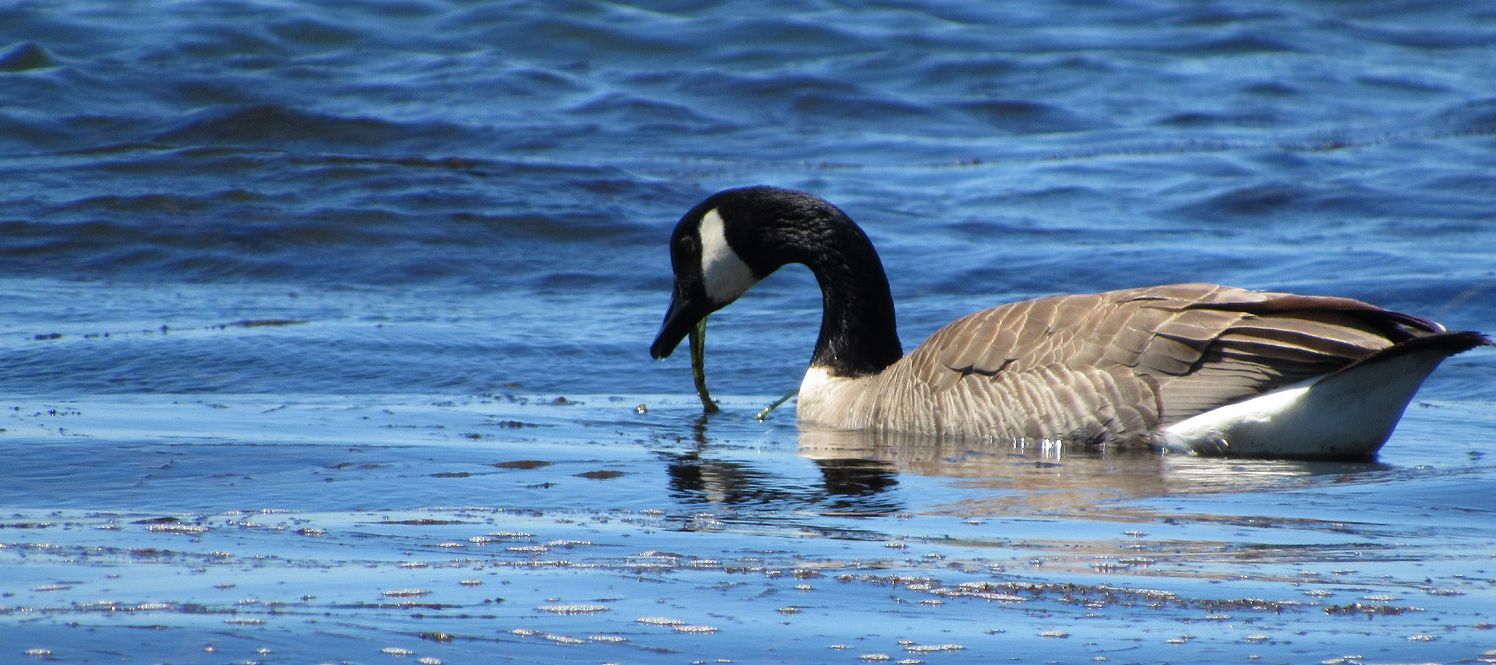||| FROM RUSSEL BARSH for KWIAHT |||
More than a dozen Canada geese visiting shorelines and farm ponds in the Eastsound area have died suddenly in the last two weeks. Testing by Kwiaht and by San Juan County Public Health have independently confirmed the presence of avian flu, which is often spread by seasonal migrations of wild geese and other waterfowl.
“Highly pathogenic” avian influenza (HPAI) is very contagious. Owners of ducks, geese, chickens and other domestic poultry should take steps to isolate them from ponds or foraging areas that may be shared with Canada geese.
HPAI is a respiratory virus. Symptoms of infection include nasal discharge, respiratory distress, disorientation, difficulty standing or walking, and lethargy. Infected birds tend to die within 48 hours of the development of visible symptoms.
In addition to waterfowl, HPAI often infects owls, eagles and other raptors. It only rarely affects songbirds, or people. Nonetheless, birds that may have been victims of HPAI should be handled with care to avoid any contact with healthy animals or contamination of water, food or bedding used by livestock.
If you discover a dead Canada goose on your property that lacks obvious wounds or other physical injuries, treat it as potentially contagious. Wear disposable gloves and/or wash hands thoroughly with soapy water. Double-bag the bird and dispose of it as solid waste. If possible, take a picture of the bird and share it with info@kwiaht.org to help map and assess the extent and duration of this outbreak. Kwiaht will share results with state authorities.








